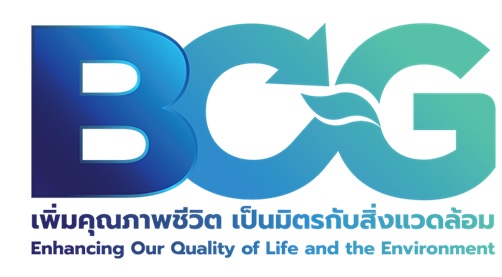In the past four years, Thai orchid farms have been severely hit by the outbreak of beet armyworm. Its resistance to pesticides causes damages to the tune of millions of baht. Thanks to an NPV product developed by BIOTEC-NSTDA, several orchid farms have recently been saved.
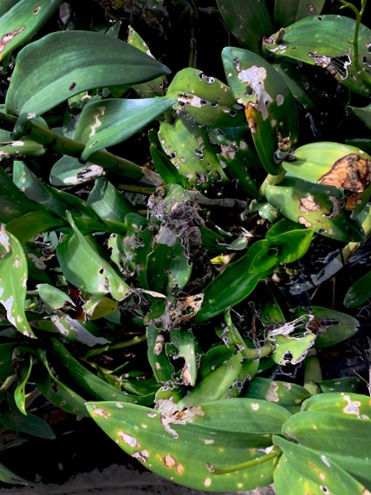
A call that changes everything
In 2019, Mr. Supisit Wongwanichpan, an orchid farmer from Nakhon Pathom, made a call to BIOTEC Veterinary Health Innovation and Management Research Group inquiring about NPV. At that time, Supisit’s 60-rai (9.6 ha) orchid farm was hit by beet armyworms for half a year. None of pesticides worked as the worms became resistant. He had heard of NPV as an insect control agent. After discovering that BIOTEC laboratory produced a commercial NPV, he contacted the lab to purchase.
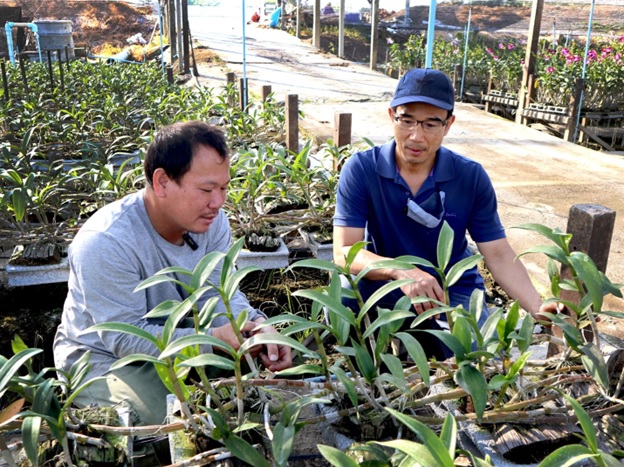
After a few phone conversations with Supisit, Mr. Samrit Kiewwong, Leader of BIOTEC Viral Technology for Biocontrol Research Team, started planning field assessment and NPV application.
NPV introduction to orchid farm
Nuclear polyhedrosis virus or NPV is an entomopathogenic virus which can destroy larval stage of lepidopteran insects. Currently, there are three NPVs: SpexNPV for managing armyworm, SpltNPV for cutworm and HearNPV for cotton bollworm. These insects are major pests threatening cultivated crops and cut flowers such as shallot, onion, tomato, cilantro, asparagus, salad greens, brassicas, orange, grape, marigold, rose and orchid.
Samrit explained that after ingesting NPV, infected larvae will eat less and die in 5-7 days. Due to its highly specific effect on the insect pest target, NPV is safe for human and the environment. BIOTEC in collaboration with the Department of Agriculture has developed commercial production of NPV and the technology has been transferred to Bright Organic Company Limited and Be Bio Company Limited.
After field assessment, Samrit suggested a high NPV dosage (20 mL of NPV with 20 L of water) for Supisit’s farm to stop the serious spread. Positive result started to manifest 3-5 days after NPV application and after 2 months the outbreak was brought under control. It has been four years since Supisit introduced NPV to his orchid farm and he is happy with the product. At the peak of the outbreak, over 300 larvae were caught daily. Now, the number is down to less than 10.
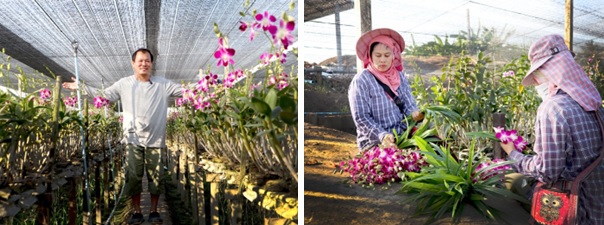
ot only did Supisit embrace this biocontrol solution, but he also performed experiments himself to determine an optimal dosage for orchid pest management. He found that the mixture of 5 mL of NPV with 20 L of water for 1-2 applications per month is sufficient to keep worms at bay.
Bring an orchid business back to life
Supisit’s farm was not the only orchid farm destroyed by armyworms. Several orchid farms, big and small, were all affected by the pest outbreak and S.V. Flora Thai Orchid Company Limited was one of them. The owner said that his company spent hundreds of thousands of baht on pesticides each month, but still could not manage armyworm infestations. The company designated a portion of their orchard - a 75-rai (12 ha) plot - to test NPV.
It took 2 weeks to eliminate the first batch of worms, and another two months to get rid of the worms completely. After two months, orchid plants started recovering and growing flower branches. The company’s orchid export business was saved. After three years of using NPV, the company is now applying NPV once or twice a month for the upkeep.
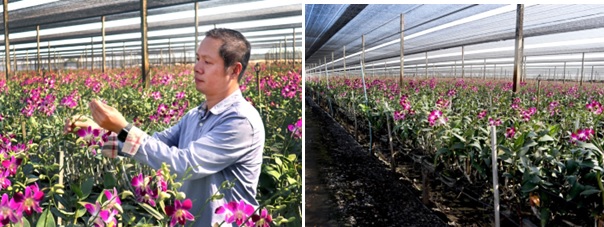
The company owner was impressed with NPV and BIOTEC research team. He said that he now has great confidence in NSTDA innovations and is willing to test any other innovative solutions at his farm.
Word of mouth
Mr. Somlak Lertrungwittayachai, owner of RVN Flora Thai Export Company Limited, is an expert in orchid cultivation and export. Although his orchid farm was not severely destroyed like Supisit and S.V. Flora Thai Orchid’s cases, the presence of armyworms in the orchard was unsettling. After hearing the success story of his industry peers, Somlak decided to collaborate with BIOTEC to test the product on his farm. He is satisfied with the effectiveness of NPV and still uses it as part of the pest management program.
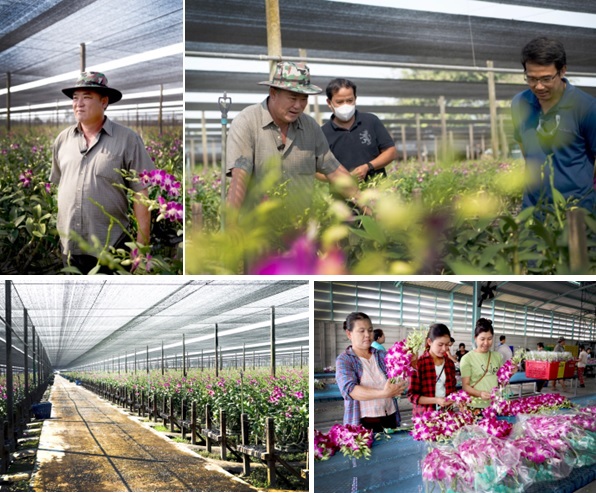
NPV is one of NSTDA solutions to enable Thai farmers to practice sustainable agriculture according to the Bio-Circular-Green Economy model.
